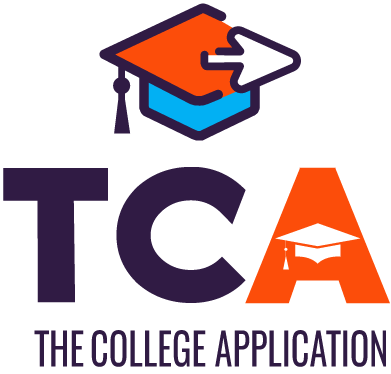Are you ready for the Next Generation NCLEX (NGN)?
Launched on April 1, 2023, the NGN aims to better measure your clinical judgment and decision-making abilities. Here’s everything you need to know about the NGN and how it affects your exam experience.
Why the NGN?
The NGN was launched on April 1, 2023, in response to the increasing expectations for newly licensed nurses to make complex decisions while caring for patients.
The National Council of State Boards of Nursing (NCSBN) recognized the need for entry-level nurses to have strong critical thinking, clinical decision-making, and clinical judgment skills, which directly impact patient safety. So, they developed the NGN to better assess these skills.
Registering for the NCLEX
To take the NCLEX, you’ll need to register with Pearson VUE, provide your program code, an email address, and an acceptable form of payment. Make sure your first and last name match the identification you’ll present at the exam appointment.
Registration fees vary depending on the country you’re seeking licensure in. Here’s a quick breakdown of the fees:
- U.S. Licensure: $200 USD
- Canadian Licensure/Registration: $360 CAD
- Australian Licensure/Registration: $200 USD
- Additional International Scheduling: $150 USD for US & Australia; $150 CAD for Canada
Your registration will remain open for 365 days, and once you’re made eligible, you must test within the validity dates provided in your Authorization to Test (ATT) email.
What’s Changing with the NGN?
While the NGN still measures the same critical content areas and uses a computer-adaptive format, there are some key changes you should be aware of:
- Case studies: These help measure clinical judgment, as each question builds on the previous one. They reflect real-world decisions nurses make in healthcare settings.
- Partial-credit scoring: You can receive full, partial, or no credit for an answer based on your selected response.
- Critical Judgment Items: You’ll encounter new item types designed to assess clinical judgment skills.
New Question Types and Case Study Formats
The NGN includes 15 new question types, such as Extended Multiple Response, Extended Drag and Drop, Cloze, Highlight Text, Matrix/Grid, Bowtie, and Trend.
In addition to traditional item types, the NGN introduces unfolding case studies and stand-alone clinical judgment items, which assess your understanding of one or more steps within the NCSBN Clinical Judgment Measurement Model (NCJMM).
Case studies comprise a clinical scenario, supporting information, and six sequential questions requiring multiple decisions. Stand-alone items, including diagnosis and supporting information, use either the bowtie or other NGN item types.
Understanding the NCJMM
The NCJMM is a framework that outlines the steps a nurse must take to respond appropriately to patient needs. Nurses must recognize cues indicating a problem, follow a decision-making process, take action, and evaluate the client’s response.
The model expands on the nursing process and enables a more detailed assessment of thought processes and the context surrounding decisions. Ultimately, it allows for a more detailed assessment of clinical judgment. The model focuses on six measurable steps:
- Recognize cues
- Analyze cues
- Prioritize hypotheses
- Generate solutions
- Take actions
- Evaluate outcomes
Next Gen NCLEX Exam Length: How many questions is the NCLEX?
With the introduction of Next Gen questions, the minimum exam length is 85 questions (70 scored and 15 unscored), and the maximum is 150 questions (135 scored and 15 unscored).
Candidates have a 10% chance of receiving a clinical judgment stand-alone item after the minimum-length exam, administered alongside traditional NCLEX-type questions.
Next Gen NCLEX Scoring Models
The NGN uses a new scoring methodology called polytomous (partial credit) scoring, which allows for partial credit on some items. This differs from the traditional dichotomous scoring, where answers are either right or wrong. Scoring models include the 0/1 Scoring Rule, +/- Scoring Rule, and Rationales Scoring Rule.
What’s Staying the Same?
Despite the changes, the NGN will still feel familiar to you. The delivery method, time allotted, and candidate performance report will not change.
You’ll still have up to five hours to complete the NCLEX-RN or NCLEX-PN exam, and it will continue to be a variable-length computerized adaptive test.
Preparing for the Next Generation NCLEX
Now that you know what to expect from the Next Generation NCLEX, it’s time to start preparing. Focus on developing your critical thinking and clinical judgment skills, and familiarize yourself with the new question types.
With dedication and practice, you’ll be well on your way to success on the NGN and ultimately, a fulfilling career in nursing.
I. The Next Generation NCLEX (NGN) Exam Preview
II. The Next Generation NCLEX (NGN) Sample Questions Pack
Tips for Next Gen NCLEX Success
To help you prepare for the NGN, consider the following tips:
- Review the NCJMM: Understand the six steps of clinical judgment and practice applying them to real-life scenarios. This will help you become more comfortable with the case study format and clinical judgment items on the NGN.
- Practice new question types: Familiarize yourself with the new NGN item types, such as Extended Multiple Response, Cloze, and Bowtie. Practicing these will help you become more confident in answering these questions during the exam.
- Develop critical thinking skills: Engage in activities that promote critical thinking, such as participating in group discussions, solving case studies, and analyzing complex situations in your clinical experiences.
- Use reliable study resources: Invest in up-to-date study materials and review NCLEX Prep courses that specifically focus on the NGN. These resources will help you become familiar with the exam format and content.
- Take practice exams: Simulate the testing environment by taking practice exams, which will help you gauge your preparedness and identify areas where you need to focus your study efforts.
- Stay organized: Create a study schedule that allows you to cover all the necessary content while also providing time for breaks and self-care. Staying organized will help you maintain a balance between studying and personal life, reducing stress and improving your overall well-being.
- Seek support: Connect with classmates, instructors, or mentors who can provide guidance, encouragement, and support as you prepare for the NGN. Surrounding yourself with a supportive network can make a significant difference in your success. We find online forums to be a great place to connect with peers. Try the r/PassNclex and/or r/StudentNurse subreddits.
In Conclusion
The Next Generation NCLEX is an exciting and necessary evolution of the nursing licensure exam. By focusing on clinical judgment and decision-making skills, the NGN aims to better prepare nurses for the complex, real-world situations they’ll encounter in their careers.
With the right preparation and a solid understanding of the changes to the exam, you can confidently approach the NGN and take the next step toward becoming a licensed nurse.
Go get it!
NCLEX Pass Rates By State:
New York NCLEX Pass Rates: A Deep Dive into the Statistics
California NCLEX Pass Rates: A Deep Dive into the Statistics
Illinois NCLEX Pass Rates: A Deep Dive into the Statistics
Georgia NCLEX Pass Rates: A Deep Dive into the Statistics
Texas NCLEX Pass Rates: A Deep Dive into the Statistics
Pennsylvania NCLEX Pass Rates: A Deep Dive into the Statistics
North Carolina NCLEX Pass Rates: A Deep Dive into the Statistics
Virginia NCLEX Pass Rates: A Deep Dive into the Statistics
Arizona NCLEX Pass Rates: A Deep Dive into the Statistics
Related Nursing Readings:
How to Know If You Passed the NCLEX Right Away: 7 Good Signs
12 Bad Signs You Failed the NCLEX
The Best Next Generation NCLEX Prep Courses Reviewed
The Best NCLEX Prep Books guide


